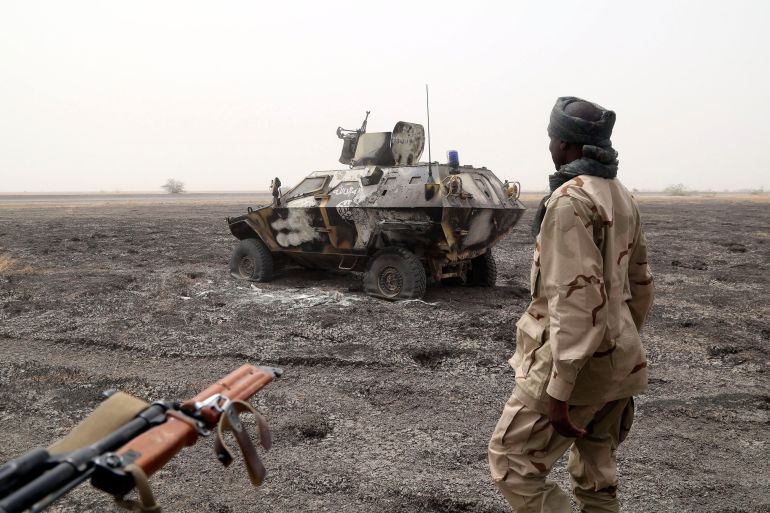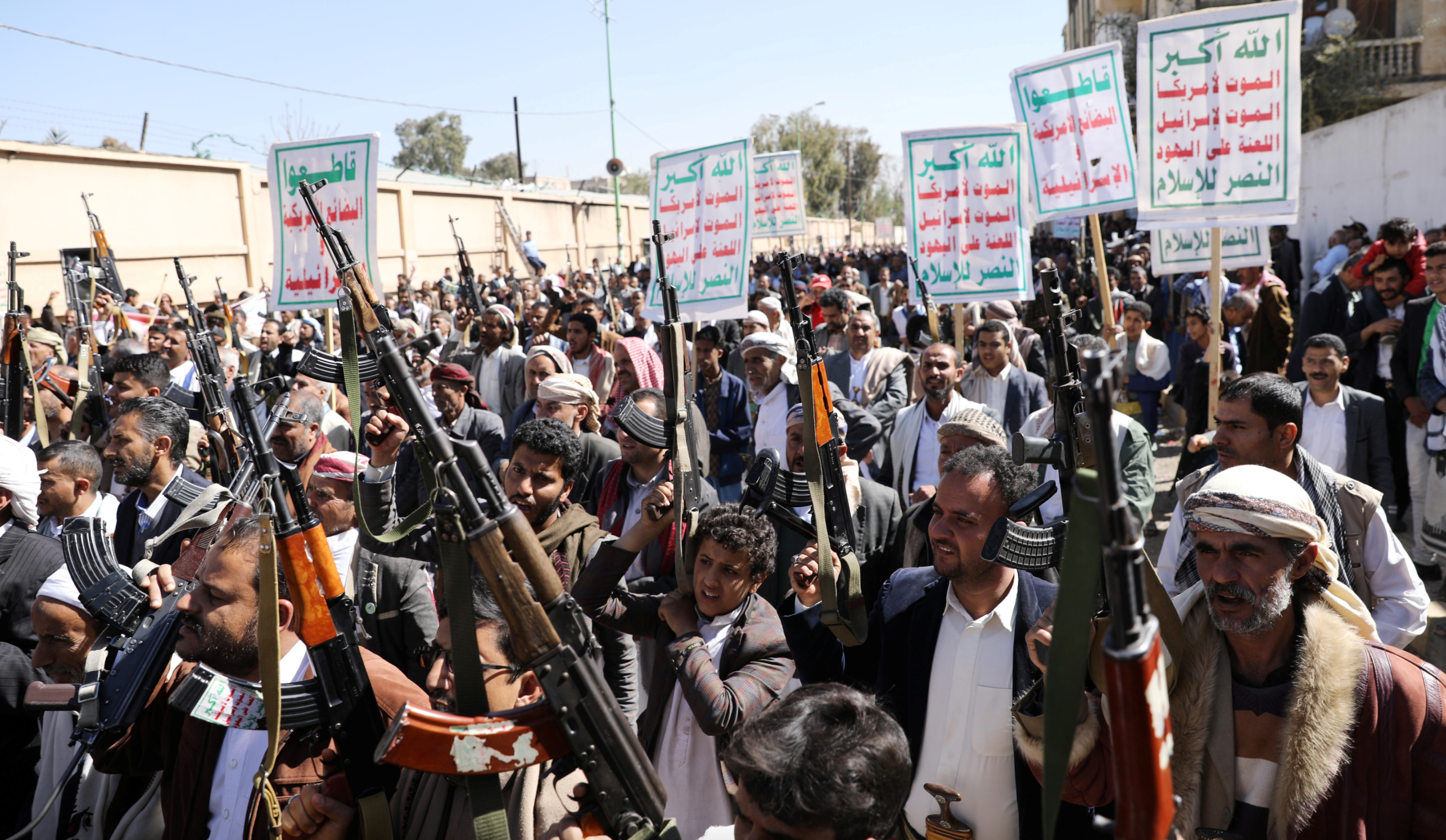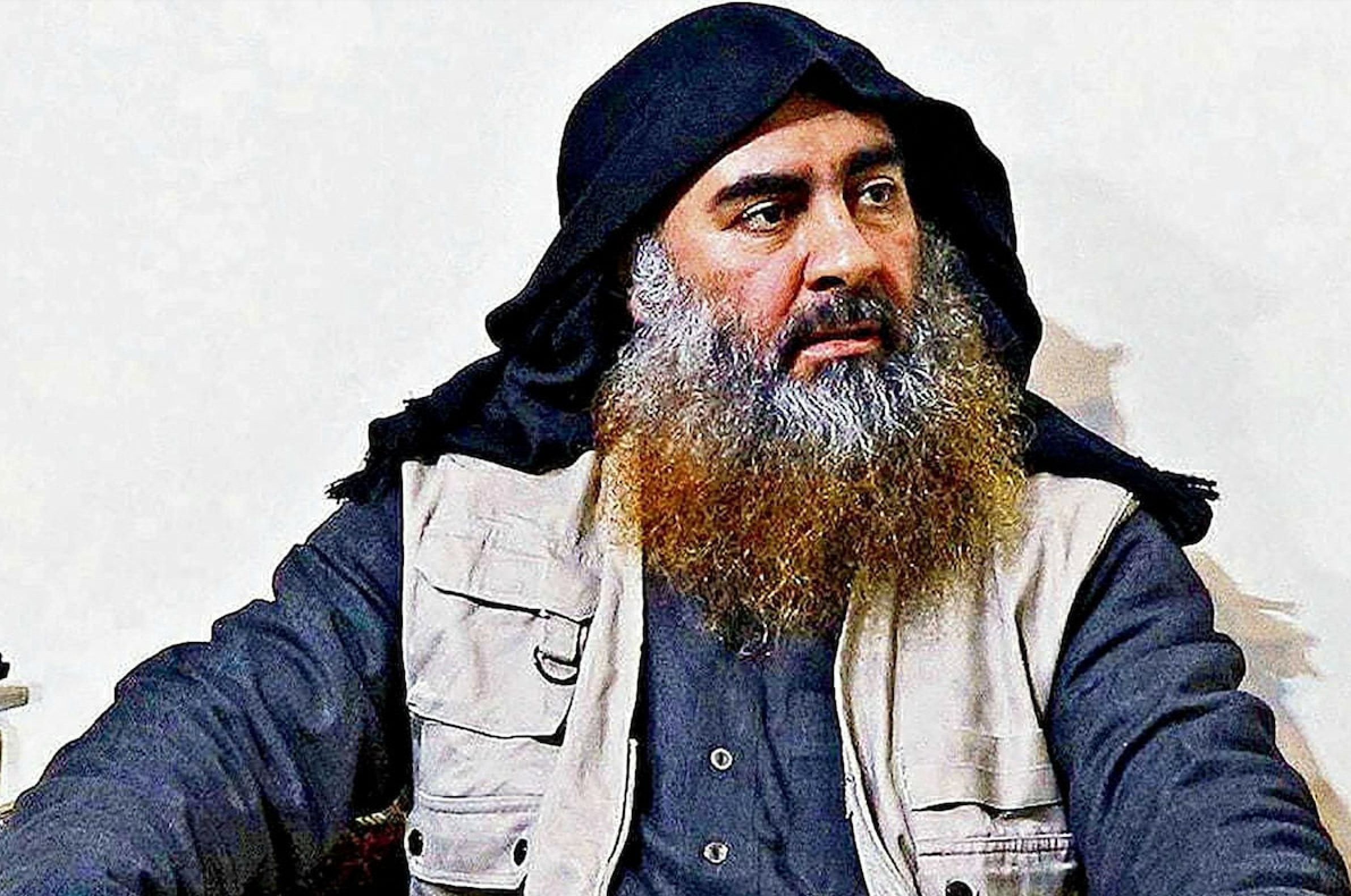
Explainer: Boko Haram
(Reuters photo)
BY GABRIEL FANELLI
The Multinational Joint Task Force (MNJTF) intensified its counter-Boko Haram operations in May under the banner of Operation Lake Sanity 2. Since May, the MNJTF has managed to thwart the major supply and logistical routes used by the group, nicknamed The Nigerian Taliban. Between July 10 and 17, another 263 Boko Haram fighters surrendered to MNJTF units along the Nigeria-Cameroon border and were handed over to the Nigerian Army who occupies the northeastern state of Borno under their own counter-Boko Haram and Islamic State West Africa Province (ISWAP) mission called Operation Hadin Kai. Hadin Kai is run out of Maiduguri, the hometown of Boko Haram which established itself in 2002 under the guidance of Muhammed Yusuf. As a British SBS friend I served with in Nigeria once told me, living in Maiduguri is an “extreme sport”.
Yusuf was a university educated man but take that with a grain of salt as he asserted on more than one occasion that the earth was flat. His birth in 1970, along with his eventual successor Abu Bakr Shekau’s in 1969, bookended the end of the Nigerian Civil War, also called the Biafran War, and a period marked by the promise of Nigerian unity and economic benefit for all citizens due to oil revenue. The reality of the Nigeria that both Yusuf and Shekau grew up in was much different, and over the next 30 years the gap between the rich and the poor widened, ethnic tensions swelled to all time highs, and corruption was the single word used to describe the Nigerian government. Both Yusuf and Shekau were born in Yobe State, one state in Nigeria’s Muslim majority north. They saw the political landscape marginalizing Muslims in favor of the Christian majority. In an open letter to the Nigerian government in 2009, Yusuf claimed “the government of Nigeria has not been built to do justice…it has been built to attack Islam and kill Muslims.”
The poverty and inequality that Yusuf and Shekau faced when they emigrated from Yobe state to Maiduguri in Borno only accentuated their deeply held beliefs that as young Muslim men, their government was their adversary. Two incidents occurred when they were young in other parts of Nigeria that reinforced the idea that they, along with every young Muslim, was at war with the Christians. The first was in Kafanchan in 1987 when the Muslim Student Society attacked the Christian students at the College of Education, burning dozens of churches in the process and killing 13. The other was the Zangon Kataf Crisis in 1992, when proposals for the site of a new market turned deadly as Muslim Hausas clashed with the Christian Atyap – close to 600 died in the mayhem.
Yusuf saw the culprit behind the Christian abuse of power as post-colonial western education, which he viewed as fraught with materialism, and void of compassion and truth. He formed a group in 2002 to combat these perceived evils and called it Boko Haram. Boko in Hausa is one word with many meanings, including its use here: any reading or education which is not connected with Islam. Another common definition is “sham” of which Yusuf believed western education to be. Boko-Boko is the act of “hood winking” someone through malicious deceit. Haram is Arabic for forbidden. Together, their main tenet is that western education is a sin, and their subsequent kidnapping of children from schools was meant to prevent children from being deceived and punishing their parents for doing this to them.
From its founding in 2002 until 2009, Boko Haram was a relatively peaceful group, save for Yusuf’s fiery sermons which drew many to the Indimi Mosque in Maiduguri, where his Salafi mentor, Ja’afar Mahmud Adamu preached as well. He denounced state and police corruption, which drew in thousands of disaffected youth searching for an explanation to their current woes. Even if they had no means to change their circumstances, at least they had someone to blame. But in 2009, the rhetoric turned into action when the Boko Haram Uprising launched its first offensive against Nigerian security forces in four states across northern Nigeria: Bauchi, Borno, Yobe and Kano. Numerous Muslim leaders across Nigeria pleaded with the Nigerian authorities to stop Boko Haram in the months leading up to the offensive. Boko Haram was not only targeting Christians, but Muslims who didn’t buy into their version of Islam. This ideology of takfirism characterized the Islamic State and other Islamist groups in the Sahel, including al-Shabaab. On July 26, 2009, Boko Haram attacked a police station in Bauchi State. The next three days saw over 1,000 people killed, 70 percent of them in Maiduguri alone.
Yusuf was captured by the Nigerian military who said he was shot while trying to escape. The reality is that he was executed in front of the police headquarters in Maiduguri. Despite the apparent justification for the immediate execution, Nigeria prides itself on being a democracy and extrajudicial killings taint that reputation. Similar killings, much less justified than that of Yusuf’s, led to the END SARS protests in 2020, which sought to end the heavy hand of the Special Anti Robbery Squad which ravaged Nigeria for years.
Abu Bakr Shekau took the helm in 2009 and took the group a new direction, which included kidnap for ransom operations, suicide bombings, and forced mass conversions. One would argue that a forced conversion to Islam is hardly sincere, but to Shekau, it didn’t matter. Few around the world knew who he or Boko Haram was until 2014 when he orchestrated the kidnapping of 300 schoolgirls from Chibok, Nigeria. This international notoriety was what he needed to apply for entrance into the Islamic State’s inner circle of transnational jihadist groups. He pledged allegiance in March 2015, but central Islamic State leadership sought to replace Shekau shortly after.
When the Islamic state backed another Yobe born Nigerian Islamist as leader of Boko Haram, Shekau turned on them. Abu Musab al-Barnawi was given the blessing by the Islamic State to lead the now splinter organization known as ISWAP. Those still loyal to Shekau remained under the name Boko Haram. Boko Haram was now fighting a two-front war, both against ISWAP, and against the Nigerian security apparatus, who had backing from the MNJTF and the United States.
A war for the claim over Nigeria’s Islamist movement culminated in the Battle of Sambisa Forest in May 2021, shortly after I left Abuja. ISWAP had cornered Shekau, and peace negotiations began shortly thereafter. During the talks, Shekau detonated a suicide vest killing the majority of ISWAP and Boko Haram leadership. The site of his death is listed as simply “GFYS, Nigeria” which is somewhere in the Sambisa. The links takes you to a google review for the Sambisa Forest, which boasts 3.1 stars and is listed as “good for kids.” The remaining Chibok schoolgirls who have yet to be released would beg to differ. An individual named Chris Johnson left a cogent review of the forest when he wrote, “a little bit shooty. Will be better when they build a McDonalds though. Not a great place for the family to be honest, a little bit stabby too”.
While the western world can fairly color this misunderstood and violent area of the world with a little bit of comedy, Boko Haram has destroyed countless lives, and displaced millions of people. The remnants of the organization still operate in the north of the country and are lumped into an overall category of banditry which the Nigerian government struggles with to this day. Numerous groups have urged the new President of Nigeria, Bola Tinubu to end the insurgency immediately, and stop the malignant spread of kidnap for ransom operations. While the MNJTF and Nigerian military have had marked success in the lawless Lake Chad Basin, Nigeria will not be able to combat future groups that arise of the same ilk as Boko Haram unless it fundamentally changes how it governs itself. The loss of the U.S. presence in neighboring Niger punctuates the difficulty of this task, and other rival organizations such as Russia’s Wagner Group (now Africa Corps) would seek to help Tinubu fix their internal problems without the good intentions of American democratic values.









